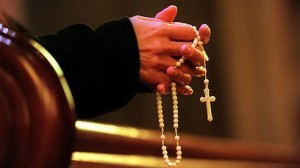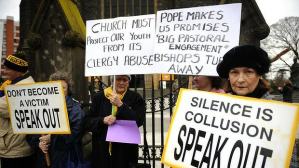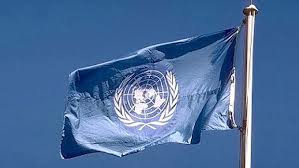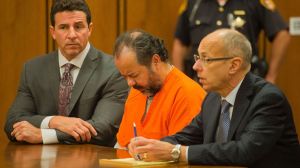Almost every day when I type ‘child abuse’ into the Google search engine, scores of stories crop up. However, it was only recently that a very familiar word started cropping up alongside ‘child abuse’. That word was ‘priest’.
According to an article by The Guardian, the clergy child abuse scandals in many countries have drained morale and finances from the church, driving numerous Catholics away, especially in western Europe. Some dioceses have had to close parishes and take other severe actions after paying out millions for counseling and other compensation to victims in cases settled in and out of court.
In Australia, the situation became unbearable with the suicide of 43-year-old, John Pirona last year, who was routinely sexually abused as a child by the notorious priest, John Denham. His tragic death, which was a result of severe psychological trauma after being abused for so long, was the catalyst for the Newcastle Herald’s Shine the Light campaign for a royal commission and prompted Julia Gillard’s sanctioning of the Royal Commission into Institutional Responses to Child Sexual Abuse.
While steps are being taking to make the accused and guilty pay for their actions, most of the abuses date back to the 1970s. So what has the Catholic Church been doing up until now, you may ask? The answer to that question is simple – covering up.
In fact, the Royal Commission in Australia found that the Pope’s representative in Australia knew of the serious accusations against the notorious priest Denis McAlinden from at least 1995. This is just one example of how the entire religious institution would routinely turn a blind eye as a means of avoiding scandal. This is not to say that priests condoned such sexual abuse. Instead, an argument can be made that they were afraid of the negative repercussions if such news got out. After all, what would their congregation say when the news of ‘men of god’ abusing young children for the fun of it, got out?
According to a prolific article, Catholic Priests Unmasked: ‘God Doesn’t Like Boys Who Cry’, the behaviour of the church can be understood based on two principles.

Image Courtesy: Phillip Coorey, http://www.smh.com.au
The first is ‘scandalizing the faithful’. Traditionally, the hierarchy believed the greatest sin was shaking the faith of Catholic congregations. Protecting them meant concealing scandal. Adopting that as your moral standpoint means anything goes. You can cover up sexual misconduct from those you demand sexual morality from. You can conceal financial corruption from those who put their pounds in the collection plate. You can silence the abused and protect the abuser. Guilt about sacrificing individuals is soothed by protecting something bigger and more significant – the institution.”
The second concept is “clericalism”, a word used to describe priests’ sense of entitlement, their demand for deference and their apparent conformity to rules and regulations in public, while privately behaving in a way that suggests the rules don’t apply to them personally. The Vatican is an independent state; the Holy See a sovereign entity recognized in international law and governed by the Pope. The Nunciature operates like government embassies in different countries worldwide. It is even governed by its own rules: Canon Law. All this contributes to the notion that the church can conduct its own affairs without interference or outside scrutiny. It demands a voice in society without being fully accountable to it.
However, the fact that the church can conduct its affairs as a sovereign state, does not give it the permission to conduct its affairs however it pleases. When Syria uses chemical weapons against its own people, the international community reacts in outrage. As such, sovereignty is not reason enough for the international community to turn a blind eye.
While the church is a religious institution, it is not exempt from the law and cover ups should not be tolerated. Speaking as a Catholic, the news of such abuse horrified me. I go to church every Sunday not out of obligation but belief in it’s teachings. The church has taught me to help others and to not be silent when gross atrocities are being carried out in front of your eyes. In my opinion, they should heed their own teaching.
What do you guys think? How can we ensure justice if the institution turns a blind eye?
We have a voice, lets use it.
Do note that every once in a while, I will explore issues outside the exclusive realm of sexual violence, that I feel deserve a great amount of attention. Do Check out “Hot Topics” for more prolific issues around the world.
Related articles
- Benedict Breaks Silence, But Does That Help? (tabamantia.wordpress.com)
- Australia child abuse hearings begin (bbc.co.uk)
- Predator priest’s conduct ‘horrific’ (news.theage.com.au)



